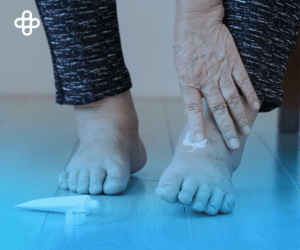Stem Cells and Psoriasis. Researchers from Brigham and Women’s Hospital and the Harvard Stem Cell Institute have made a significant discovery. They found that an accumulation of stem cells may be the origin of the pathology.
Psoriasis is a chronic autoimmune skin disease. It affects more than 125 million people worldwide, according to a report by the Journal of Investigative Dermatology in 2017. Patients with psoriasis experience physical symptoms, psychological effects, and social consequences. These factors contribute to an annual cost of around $135 billion in the United States alone.
Ivonne Arellano Mendoza, Head of the Dermatology Department at the General Hospital of Mexico, provided insights on psoriasis in Mexico. Approximately 2.5 million people in the country suffer from this condition. Of them, 25 to 30 percent have moderate psoriasis. 70 to 75 percent have mild psoriasis. 25 to 30 percent have moderate to severe psoriasis.
The Research
“Psoriasis causes social and psychological stress, which is associated with the risk of diabetes and cardiovascular diseases, among others. George Murphy, Director of the Dermatopathology Program in the Department of Pathology at Brigham, explains that they haven’t understood the cause. This is why they don’t have a cure, even though they can prescribe steroids and biological products. “Our initial finding that skin thickening in psoriasis is due to the accumulation of dysregulated stem cells and their progeny is exciting because it represents a new way of thinking about an ancient and significant skin disease.”

To better understand the underlying behavior of dysregulated skin stem cells, the researchers focused on the epigenome. The epigenome is the methylated envelope that covers each strand of DNA and orchestrates the behavior of individual genes.
“Without understanding the underlying mechanism of a disease, it’s difficult to find effective treatments,” recalls co-senior author Christine Lian. She is a dermatopathologist in the Department of Pathology at Brigham. “The question we decided to pursue was: Is there an epigenetic abnormality in psoriasis that can explain why stem cells misbehave?”
Lian, Murphy, and their colleagues discovered a defect in the epigenetic envelope resulting in the loss of a methylation mark called hydroxymethylation of DNA. Known as loss of 5hmC, this defect was found in cells from patients with psoriasis. However, it was not found in other skin conditions that produce a similar thickening of the skin. Examples include calloused areas resulting from chronic irritation. The team replicated the defect in a mouse model of psoriasis. They observed that it predominantly affected genes that regulate skin cell function.
Loss of 5-hmC
Lian and Murphy have previously demonstrated that they can reprogram the loss of 5hmC in the skin’s epigenome. They achieve this using fundamental agents such as ascorbic acid (vitamin C). They reasoned that therapeutic correction of the epigenomic defect in psoriasis could reverse the entire process. Based on experiments with skin stem cell cultures in the laboratory, the team presents promising preliminary data. These data suggest that they can restore levels of 5-hmC to correct the observed deficiency in psoriasis.
The researchers note that they need to conduct further research. This research is necessary to develop and test effective treatments for the role of vitamin C. Simply taking a vitamin supplement is likely to have little effect. The team has begun working on the next steps of research. These steps will include three-dimensional bio-printing of skin stem cells within their supportive niches. They will also test other epigenetic reprogramming agents.

Stem Cells and Psoriasis
The team presents promising preliminary data, indicating that they can restore levels of 5-hmC to correct the observed deficiency in psoriasis. These findings are derived from their experiments with skin stem cell cultures in the laboratory. Moreover, it has been demonstrated that the use of mesenchymal stem cells, which are found in the bone marrow, represents a viable option. This option can help decrease the observed autoimmunity in difficult-to-treat psoriasis by reducing the presence of plaques and lesions.
The clinical trial evaluated efficacy and safety by injecting four doses of mesenchymal stem cells obtained from umbilical cord tissue into psoriasis patients. The researchers administered these injections intravenously every two weeks, followed by a six-month follow-up period during which they assessed the severity of the disease using various clinical tests.
The treatment lasted for six months, and upon completion of the procedure and follow-up, the team led by researcher Lamei Cheng reported that 47% of individuals experienced a 40% improvement in PASI score. PASI stands for Psoriasis Area Severity Index, the most widely used tool for measuring psoriasis severity.
The results of this clinical trial show that an infusion of mesenchymal cells is safe. Additionally, it does not generate adverse effects. Regarding efficacy, the results demonstrate that 50% of patients treated with these cells experienced a reduction in symptoms. At the end of the trial’s duration, 17% showed no symptoms of the disease, which is undoubtedly very encouraging, according to the specialists who conducted the test.
Conclusions
Stem cells, acting as a regenerative therapy, effectively repair the affected areas of the skin and contribute to preventing the recurrence of lesions. As a result, individuals gain complete control over the disease, and in certain instances, experience the complete disappearance of symptoms. To delve deeper into this fascinating subject, we encourage you to explore our comprehensive article titled “What Are Stem Cells?”





